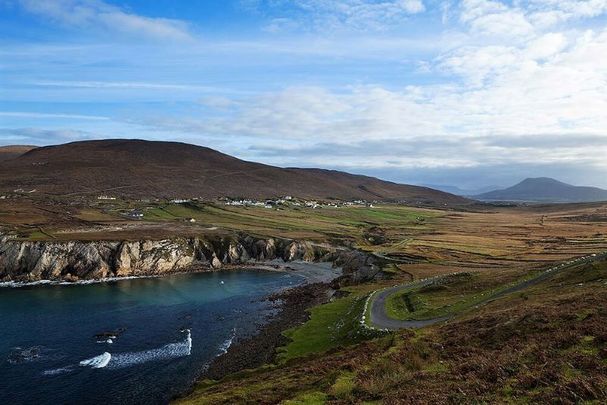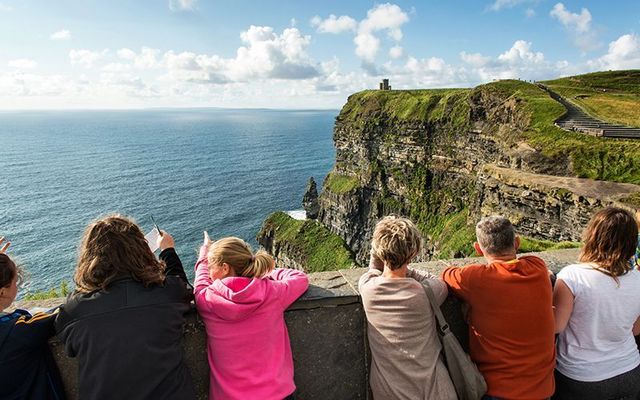Sunday, August 25, 2024 Climate Justice: A Crucial Concern for the Tourism Industry As global temperatures continue to rise, breaking records year after year, the impact of climate change is becoming increasingly evident, particularly in the tourism sector. On July 22, 2024, the world recorded its hottest day ever, surpassing previous heat records set in 2023. This alarming trend, coupled with extreme weather events like the recent wildfires in Jasper, flooding at Dubai airport in April 2024, and the 2023 wildfires in Maui, is significantly affecting popular tourist destinations.
Despite these challenges, tourism is still on the rise, with travel levels expected to exceed pre-pandemic figures soon. The relationship between tourism and climate change is complex. On one hand, the industry is a significant contributor to carbon emissions, especially through transportation and aviation, which alone accounts for an estimated 8-10% of global greenhouse gas emissions.

On the other hand, tourism is highly vulnerable to the effects of climate change. Rising sea levels threaten beach resorts, ski destinations are seeing unreliable snowfall, and some tourism businesses are facing the risk of becoming uninsurable. Historically, the industry’s response to the climate crisis has focused on climate action, including mitigation efforts to reduce carbon emissions and adaptation strategies to adjust to climate impacts.
However, a new report from The Travel Foundation argues that the tourism industry must prioritize climate justice alongside these efforts. Through extensive interviews with tourism experts, the report explores how the industry can contribute to a just transition. Understanding Climate Justice The concept of climate justice, which gained international prominence during the first climate justice summit held alongside COP 6 in The Hague in 2000, is an inclusive approach to climate action.
It emphasizes the importance of addressing the needs and amplifying the voices of communities most affected by climate change. These include Indigenous, Black, and other marginalized communities that are particularly vulnerable to severe climate impacts. As Daniela Subtil, the network coordinator for Stay Grounded—a coalition advocating for alternatives to aviation to combat climate change—explains, the climate crisis, exacerbated by aviation, disproportionately affects marginalized populations.
These communities, despite contributing the least to climate change, often lack the resources to manage its impacts and are bearing the brunt of its consequences, particularly in the Global South. The report highlights that low-income countries contribute less than 1% of travel and tourism emissions but are most affected by climate change. In contrast, a small percentage of the global population, primarily in the Global North, is responsible for the majority of tourism-related emissions.
For example, a 2020 study found that just 1% of the population, termed “super-emitters,” accounted for half of aviation’s carbon emissions in 2018. Promoting Responsible Travel The call for climate justice extends beyond the tourism industry to individual travelers. Whether in preparing for climate-related disasters at travel destinations or facing potential price increases from the industry, travelers are not immune to the effects of climate change.
The report urges travelers to consider not only their carbon footprints but also their broader impact on social justice when planning trips. This approach involves recognizing the communities and environments affected by their travel choices. Tourists should be aware that their presence may not always be welcome in areas dealing with climate-related disasters.
Embracing climate justice in tourism also involves acknowledging that tourism businesses can serve as first responders in climate emergencies, leveraging their resources and expertise to aid affected communities. Examples of Climate Justice in Tourism There are already examples of tourism practices that align with the principles of climate justice, often led by Indigenous communities. For instance, in Australia, Dreamtime Dive and Snorkel educates visitors about the Great Barrier Reef’s heritage and the climate challenges it faces, while highlighting the connection of Traditional Owners to the site.
In Canada, the Haida Gwaii archipelago off the coast of British Columbia, home to the Haida Nation, has become a model for responsible tourism. The Haida Gwaii Pledge, initiated by the local community, asks visitors to respect the land and culture and to join in the responsibility of caring for the area. This initiative exemplifies how tourism can be transformed to promote justice and sustainability, a shift that will become increasingly necessary as the impacts of climate change intensify.
Ultimately, climate justice is an issue that affects us all. The increasing frequency of extreme weather events serves as a stark reminder that climate action must be pursued with a commitment to achieving more just outcomes, potentially transforming the tourism industry for the better..



















